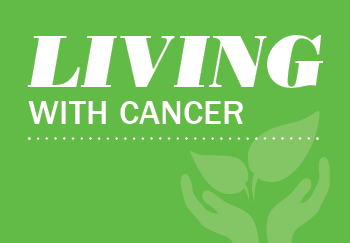 Dealing with cancer is hard on you and those around you. Cancer and divorce don’t necessarily correlate, but it can feel like the disease brought about the end. If you’re dealing with divorce during cancer treatment, you have a whole new layer of challenges.
Dealing with cancer is hard on you and those around you. Cancer and divorce don’t necessarily correlate, but it can feel like the disease brought about the end. If you’re dealing with divorce during cancer treatment, you have a whole new layer of challenges.
Cancer tends to intensify problems already present in a relationship. As financial stresses come into play, along with anxiety, shifts in caregiver roles and other burdens, how you support each other (or don’t) widens the cracks that have been there for a while. Similarly, with divorce comes changes in finances, living arrangements and family responsibilities.
Avoid Stress When Possible
Whether you were already separating before your diagnosis or it came as a surprise during treatment, getting well should be your first priority. Packing up and moving may not be feasible until after treatment. Try to dedicate individual spaces for each other in your shared home. Appointments with lawyers should be scheduled around your treatment, and give yourself time to recover before entering stressful conversations. Also, realize that with chemo, you may need extra time to make decisions, as some drugs can impair cognition. Discuss your mental struggles with your doctor and support team.
To get well, attempt to limit additional stress as much as possible. However, it’s OK to express a range of emotions and be vulnerable. Consider talking to a counselor or bringing up this struggle at your support group. Not only are you dealing with the emotions that go along with cancer, but you’re also trying to process the end of your marriage. You don’t have to pretend you’re fine. Beth Gainer, cancer survivor and patient advocate, openly shares her experience of going through cancer and divorce for guidance.
Ask for Help
Perhaps one of the biggest changes is redefining your support system. Rather than leaning on your spouse, you need to turn to extended family and friends. Reach out to a couple people who can drive you to and from treatments, shop for groceries or pick up the kids from soccer. Grab a calendar, and pick out the days you know you won’t be up for certain tasks or will need specific assistance. Then email it to your close friends and family. Whenever someone offers to help, say yes!
If you have children at home, talk to your spouse about watching the kids or picking them up from school. You may need to reach out to grandparents or other parents to help get your kids to and from activities or schedule sleepovers on days you need to recover.
Take Time to Figure Out Finances
After the divorce, you may have to enroll in a new health insurance plan. You may be eligible to remain on your spouse’s plan through COBRA, but this could be expensive. Divorce allows you a special open enrollment under the Affordable Care Act, according to Healthinsurance.org. Carefully review your options and the benefits offered for people with cancer. Social workers at your cancer center can help you decipher plan benefits.
The change in finances from divorce may mean you have to go back to or remain at work. Many people continue working during treatment, but it varies by your cancer type and treatment plan. Some employers may be required to offer you a flexible schedule. Schedule an appointment with human resources to figure out a game plan. The American Cancer Society provides advice on personal and legal issues related to working.
Keeping open communication with your ex helps you navigate the process. It’s imperative you take care of yourself and focus on getting well.
Seeking Support
Seeing a counselor can help you get perspective, heal and avoid falling into depression. Contact a counselor or join a support group at UVA Cancer Center to help cope with all your struggles. Learn More.
Other Health Stories
Cutting-Edge Cancer Care
Cancer treatment tools (like surgery, chemotherapy and radiation) continue to evolve through research. Every day, we’re working on providing more individualized, tailored cancer care through treatment plans that address your unique case and move at a pace that you choose. See how cancer care is looking to the future.
Behind the Badge: Peggy Scott, Educating Patients About Cancer Clinical Trials
UVA Cancer Center is recruiting for approximately 110 trials right now. Recruitment and outreach specialist Peggy Scott wants to be sure patients know their options.